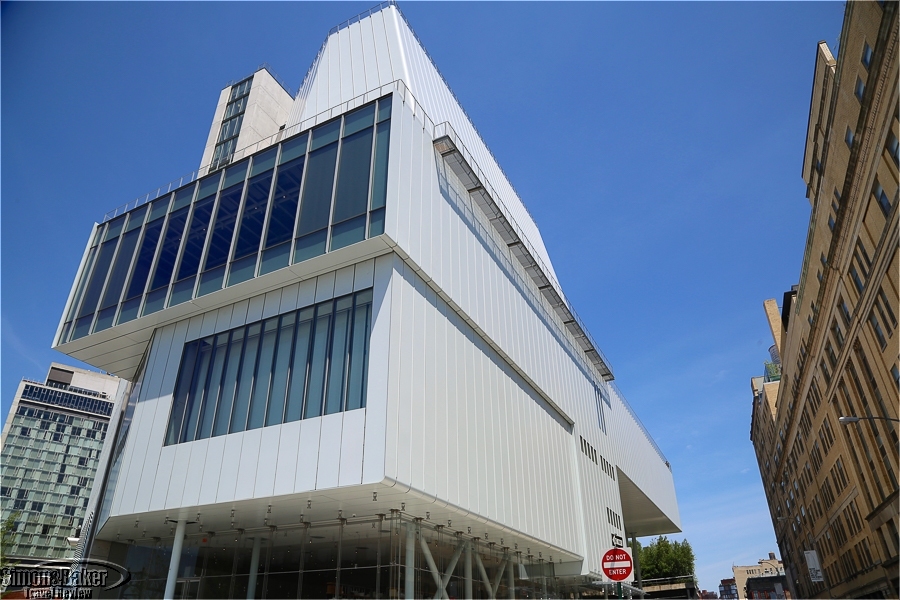
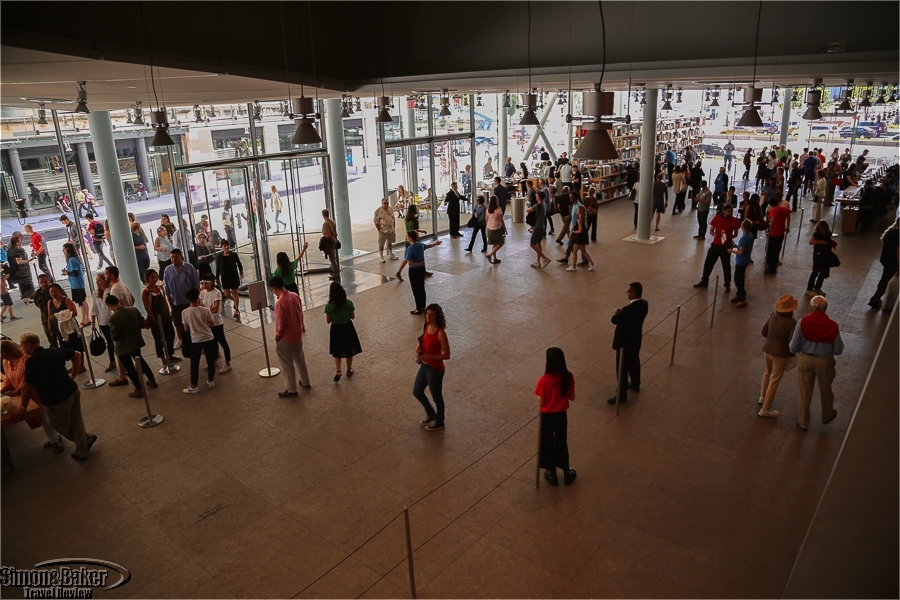
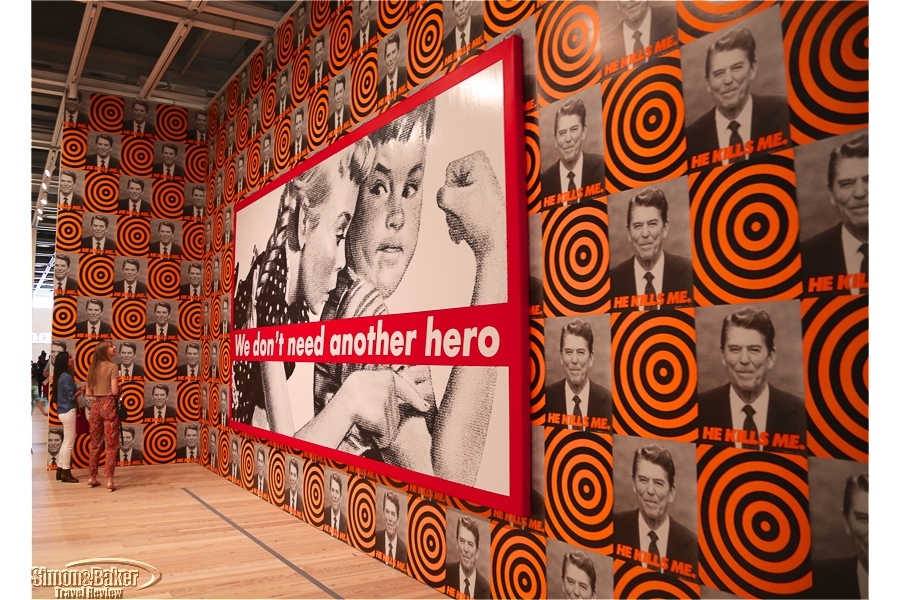
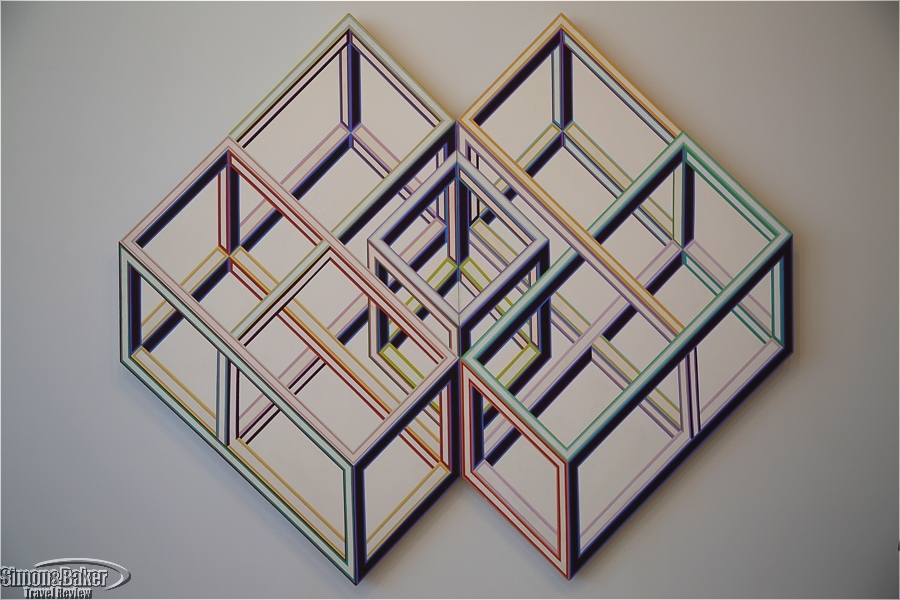
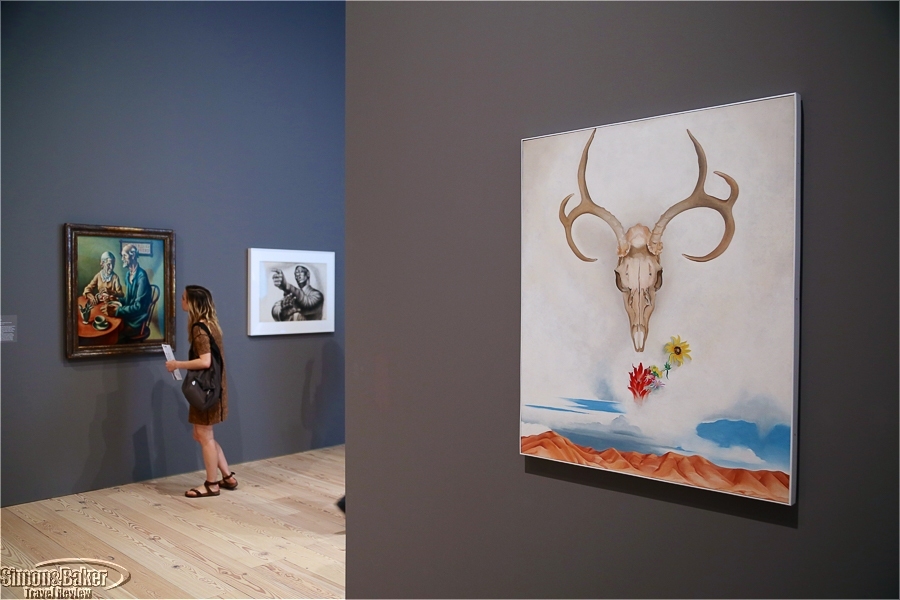
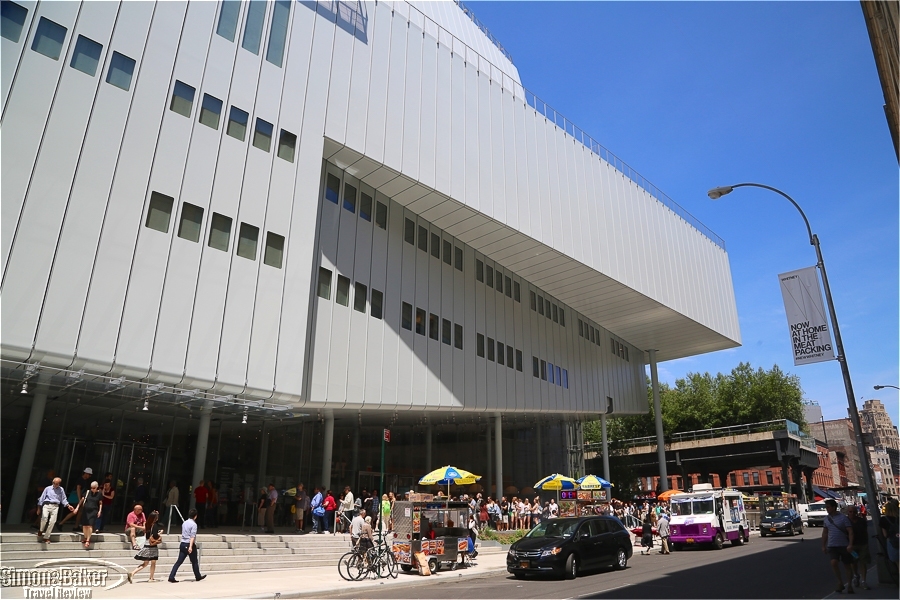
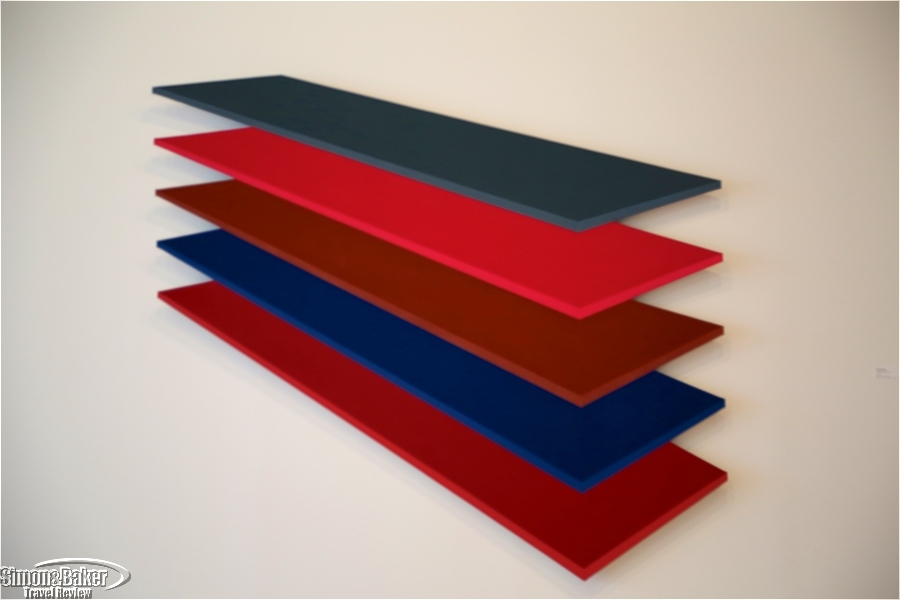
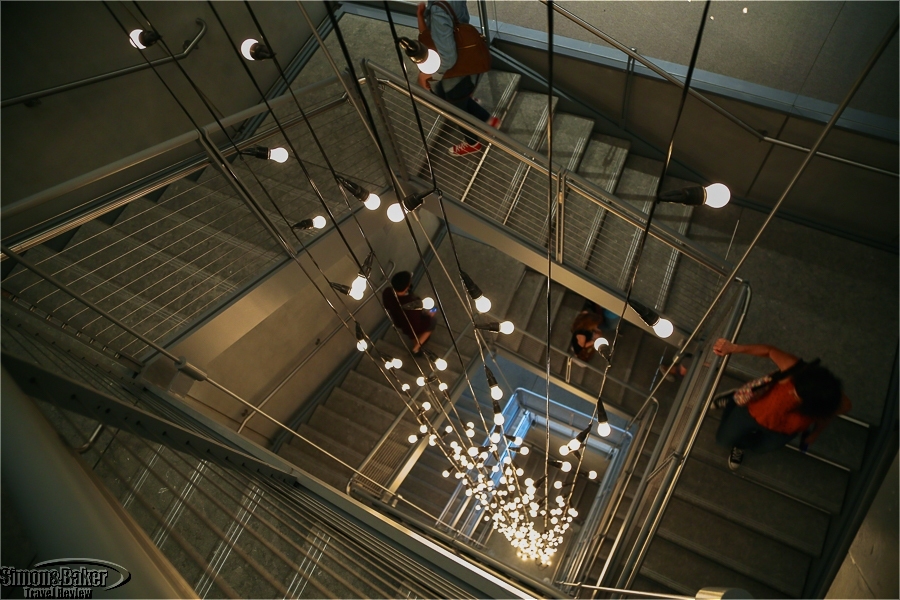
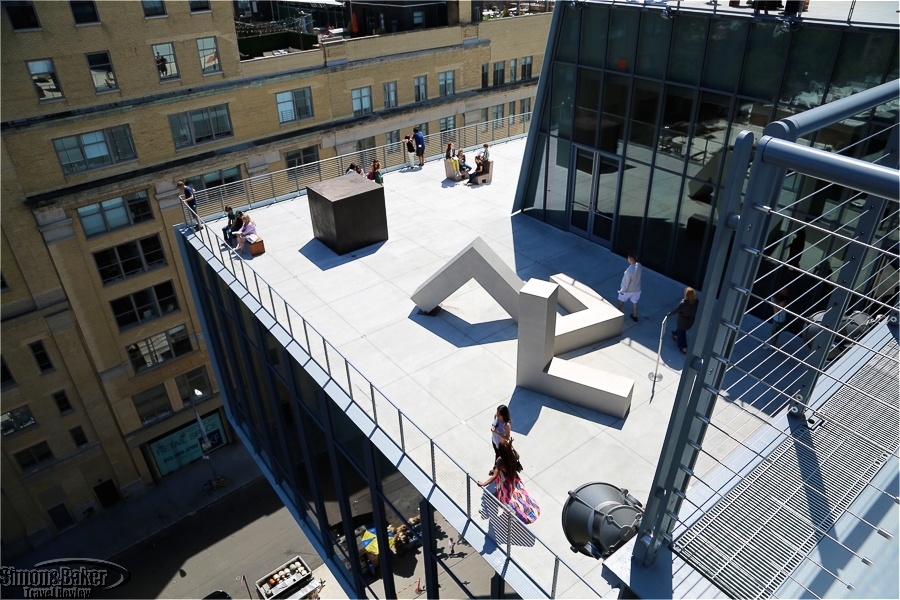
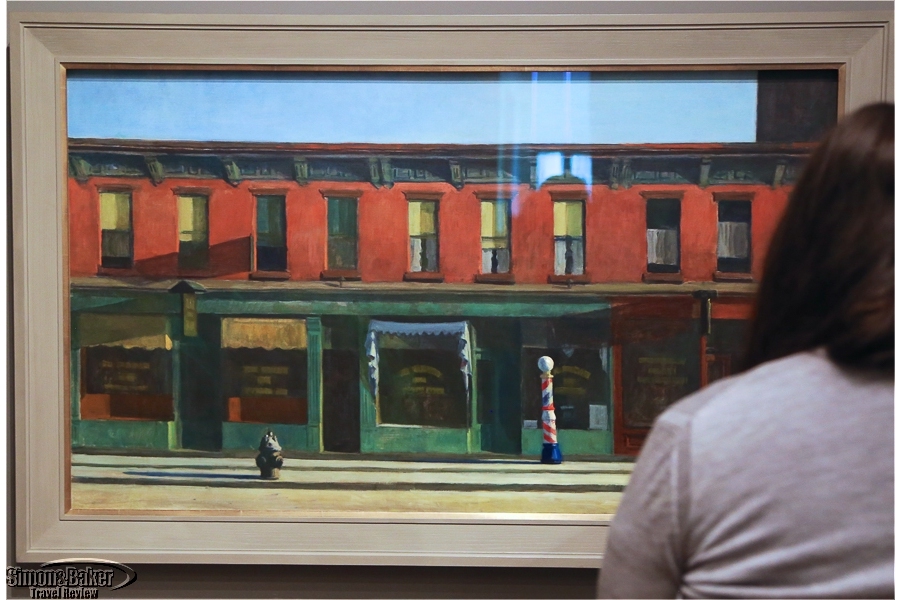
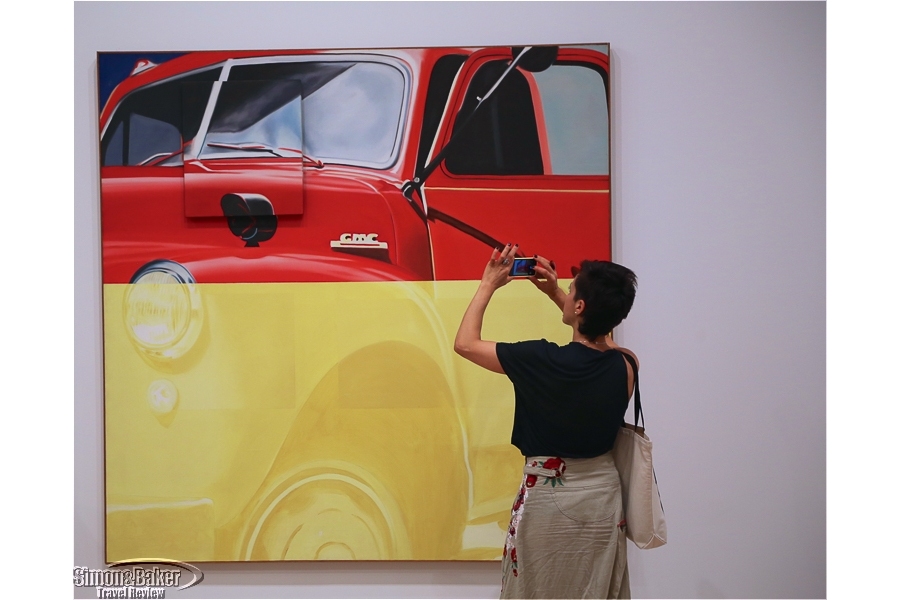
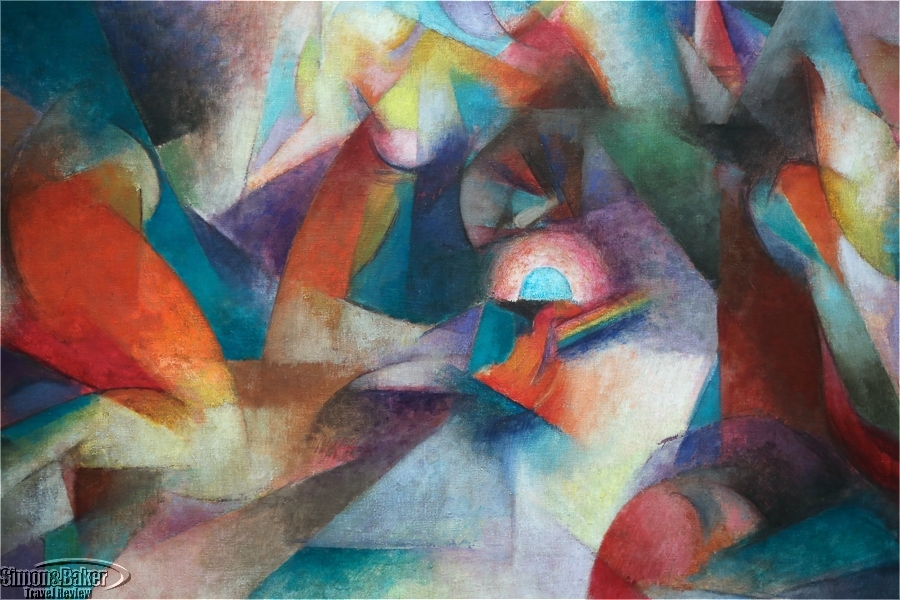
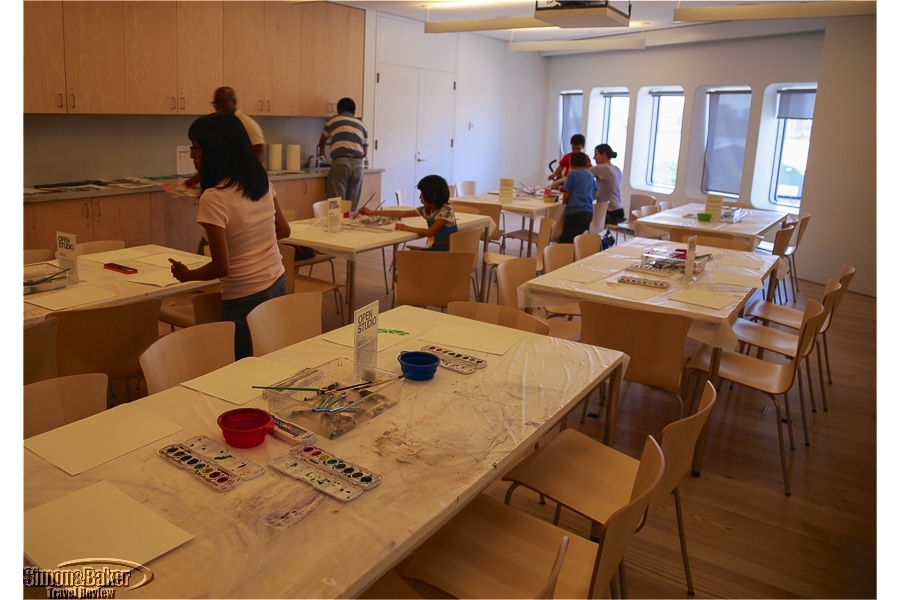
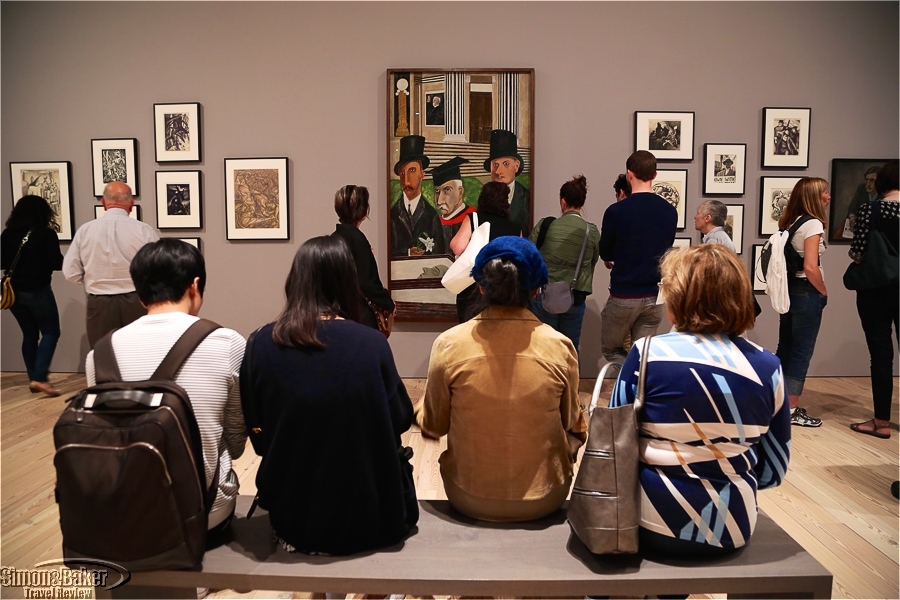
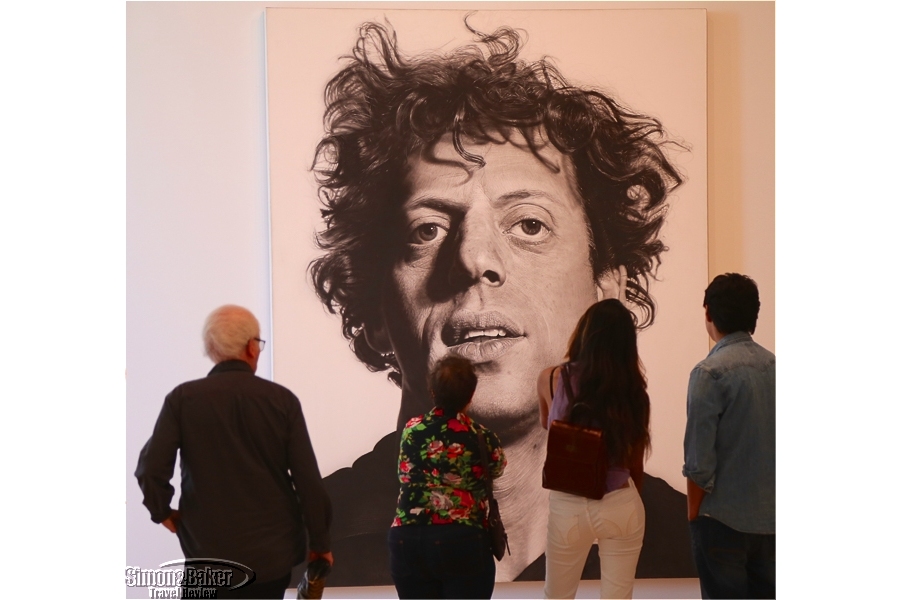
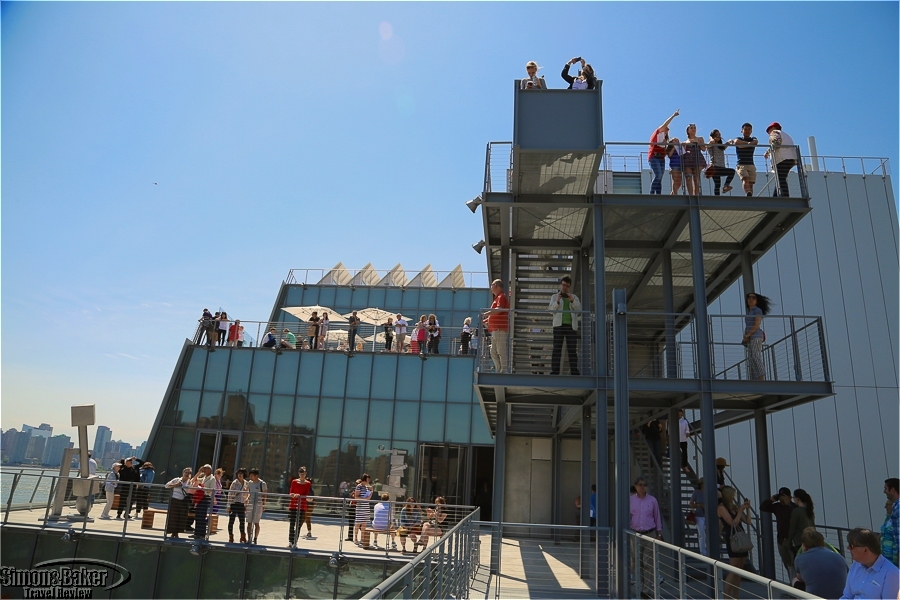
From the outside, it was an impressive structure. With staircases and terraces along the façade, we saw streams of people walking up and down the side of the building and lounging outside on the terraces. There was also a long admission line so we recommend getting tickets in advance.
The lobby was vast and modern, with a gift shop and visitor desks all sharing an open space. Once we picked up our tickets, it was easy to enter the exhibition area and ascend the building into the galleries.
The galleries themselves felt spacious, despite the crowds. We never had to wait to see a painting nor were we frustrated walking around. When we needed a rest, we found two outdoor terraces with chairs, and two indoor lounges with couches facing a tall glass wall. We sat on the comfortable couches and enjoyed a spectacular view of lower Manhattan.
The collection was astounding. We saw famous paintings by contemporary artists such as Edward Hopper, Willem De Kooning, Barbara Kruger, and Jean-Michel Basquiat among others.
While the works on display were a delight to see, the building itself was also a work of art. It had a modern vibe and was easy to navigate. It offered many ways to traverse the museum and to enjoy its unique location near the Hudson River.
We liked the museum as well as the bustling surrounding neighborhood with many interesting markets, restaurants and views. The Whitney Museum was an excellent place to visit in Manhattan because in addition to enjoying the contemporary art collection, we had fun exploring the area near the building.
Description There were eight floors in total, all accessible by either stairs or elevator. The top six floors were the gallery spaces, each with large windows and high ceilings. Two of the museum’s eight floors were dedicated to the permanent collection.
In addition to the museum’s collection of contemporary art, we enjoyed exploring the new building and the surrounding area. It was a great place to take pictures of Manhattan and to visit an area of the city that was developing into a chic and interesting place.
Do They Welcome Children? Yes, there were activity guides and audio guides for kids. In addition, we saw an open art-making studio for children that was included with the price of admission.
Established The Whitney Museum of American Art was founded in 1930, and opened in 1931 on West Eighth Street in Greenwich Village. It moved locations two more times before opening at 99 Gansevoort Street on May 1, 2015.
Handicapped access The entire museum was wheelchair accessible by elevator. Doorways to outdoor terraces were equipped with automatic openers. Service animals were welcome. There was assisted listening equipment for tours and tours in American Sign Language.
Location The museum is in Manhattan, New York City, about 19 miles from John F. Kennedy International Airport.
Number of Employees As of April 2015, there were 250 permanent full time employees.
Open The museum was open year round, every day except Tuesday.
Owned-Managed The Whitney was a nonprofit organization. At the time of our visit, Adam D. Weinberg was the director.
Size The building was 220,000 square feet and included approximately 50,000 square feet of indoor galleries and 13,000 square feet of outdoor exhibition space and terraces. The Whitney’s collection included over 21,000 works created by more than 3,000 artists in the United States during the twentieth and twenty-first centuries. Because the museum had opened a month before our visit, there were no figures on the average number of annual visitors.
Transportation The closest subway train was the A/C/E or L train to 14 street. We exited the station and walked west along 14 street towards 9 Avenue. Then we turned left on 9 Avenue then made a right onto Gansevoort Street. Two blocks down, the museum was on our right.
Reviewers
Article by Margot Liebman
Photos by Aaron Lubarsky
Would You Visit This Attraction Again? I would definitely visit that museum again. As a fan of contemporary art, it’s was inspiring. In addition, the building itself and the area near the building were worth the visit.
Contact Information
- Address:
- Whitney Museum of American Art
- 99 Gansevoort Street
- New York, NY 10014
- USA
- Phone:
- + 1 212 570-3600
- Website:
- Email:
Trackbacks/Pingbacks